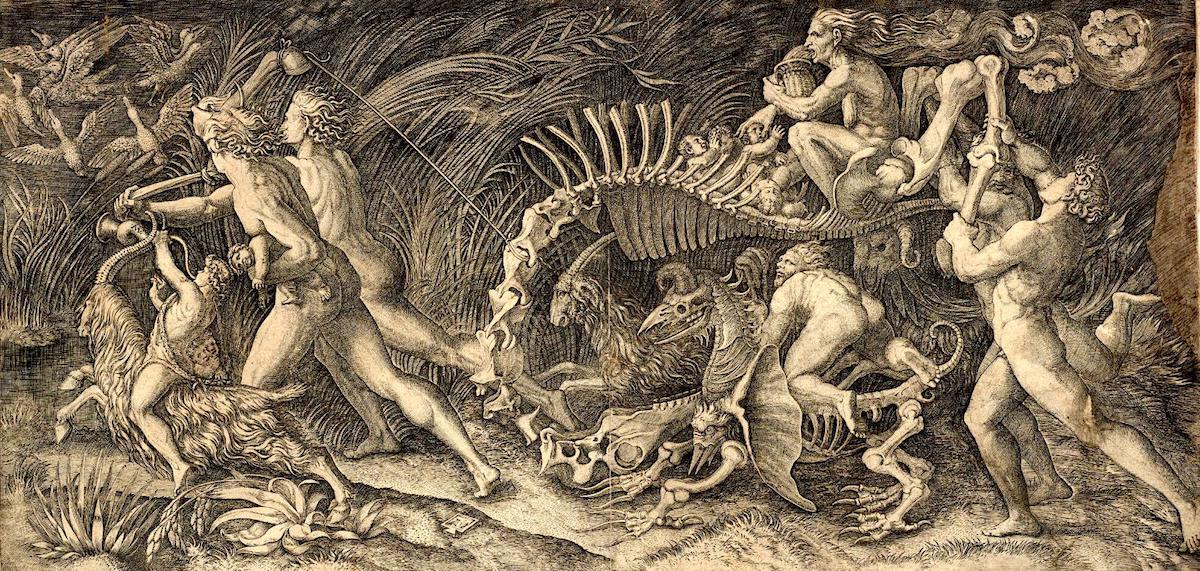
The witches’ procession, Early 16th Century, Artist Unknown. Source: The John Rylands Library



The witches’ procession, Early 16th Century, Artist Unknown. Source: The John Rylands Library

An illustration of a witches sabbath with the Devil seated in the center from Laurent Bordelon’s satirical work A History of the Ridiculous Extravagancies of Monsieur Oufle, 1710. Similar to Don Quixote, the titular character reads too many books, in this case books on “Magick, the Black-Art, Daemoniacks, Conjurers, Witches etc”, and it rots his brain, causing him to have fantastic delusions. Image: University of Glasgow Library. Full French text: archive.org
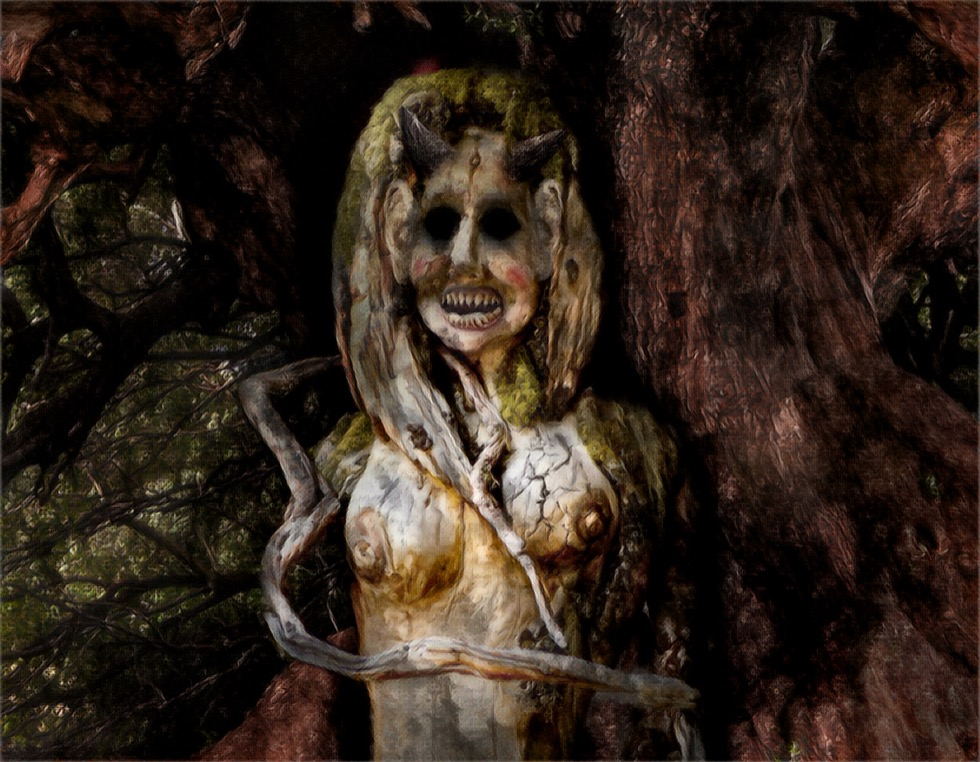
Emoniel is the 5th wandering infernal prince of the forest. He commands 100 lesser princes and chief dukes, with over a thousand spirits below them. Being an airy demon, it’s hard to see him without the use of a crystal. Image: Stiller Beobachter (modified)
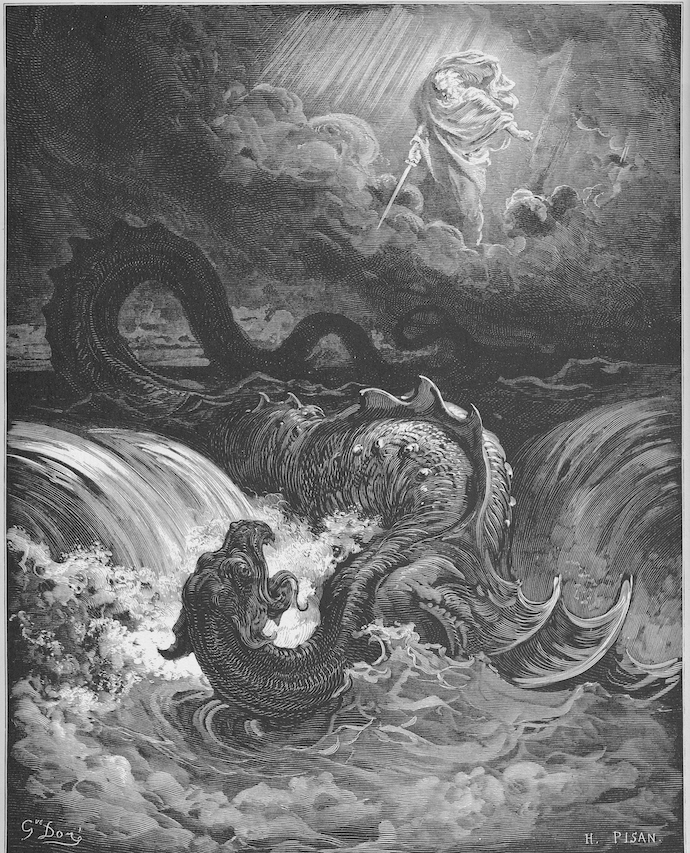
Leviathan is a massive sea serpent that appears throughout the Hebrew Bible and related texts. Originally there was a female leviathan, but God killed it out of fear that they’d multiply and destroy the world. He saved the flesh of the beast for the banquet at tLeviathan is a massive sea serpent that appears throughout the Hebrew Bible and related texts. Originally there was a female leviathan, but God killed it out of fear that they’d multiply and destroy the world. He saved the flesh of the beast for the banquet at the advent of the Messiah.he advent of the Messiah. In Binsfeld’s classification of demons, Leviathan is considered the demon of envy. Image: Gustave Doré, 1865
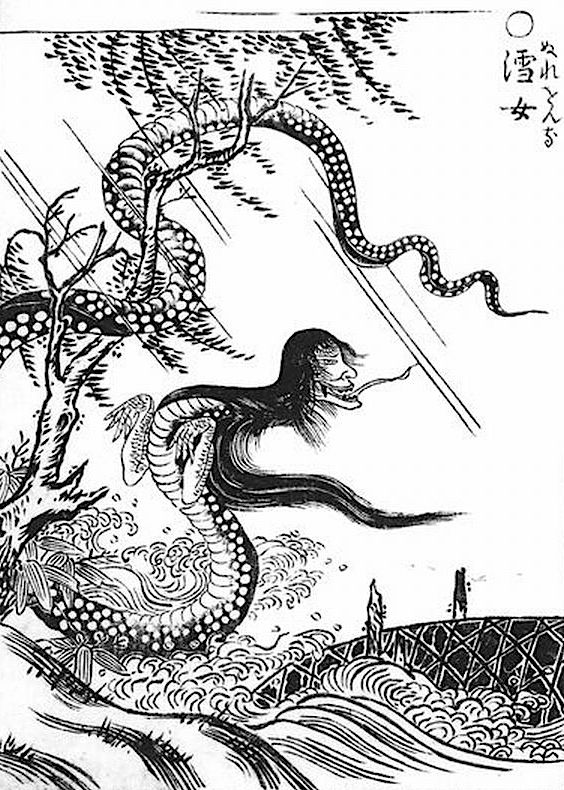
Nure-onna (“wet woman”) is a yokai found in rivers and the ocean. It helps a fellow water monster, the ushi-oni, to hunt humans. It hands the victim a baby that turns into a heavy rock, pulling them into the water where the ushi-oni devours them. Image: Toriyama Sekien, 1776 & Sawaki Suushi, 1737
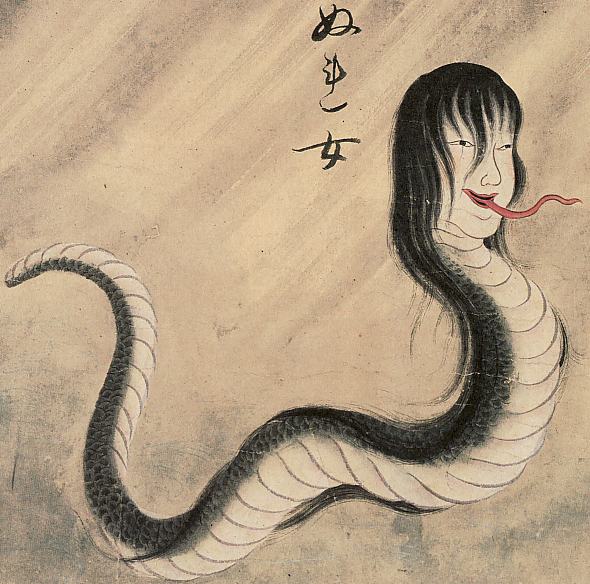
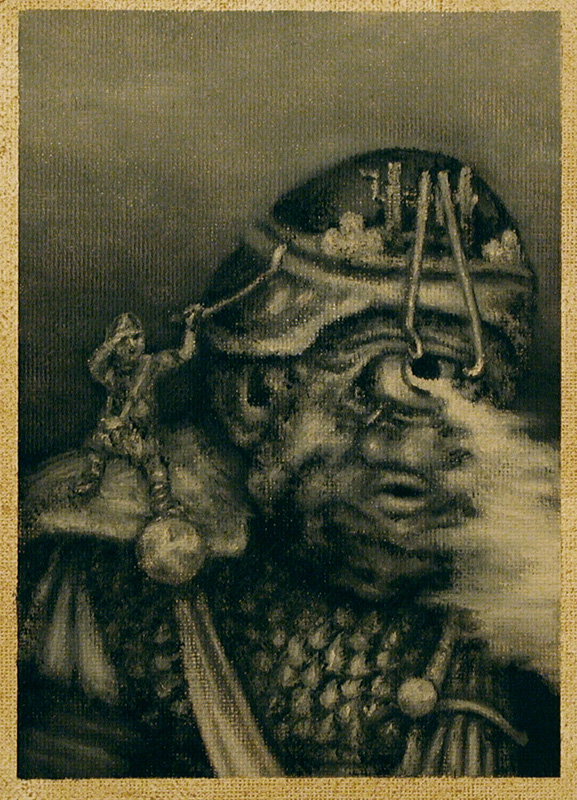
Balor was the leader of the Fomorians, a group of demonic beings from Irish Mythology. He was a giant with a poisonous eye wreaked havoc in battle. The eyelid was so heavy, that it took the strength of four warriors from his army to lift it. He was killed with a sling-stone to the eye by his grandson. Image: JFarren on Deviant Art

A nuppeppo is a wrinkly, featureless yokai with powder-white skin that smells of rotting flesh. It’s a harmless, solitary creature that can be found in deserted towns, graveyards, and temples. Some say eating a nuppeppo will grant eternal youth. Image: Hyakkai Zukkan
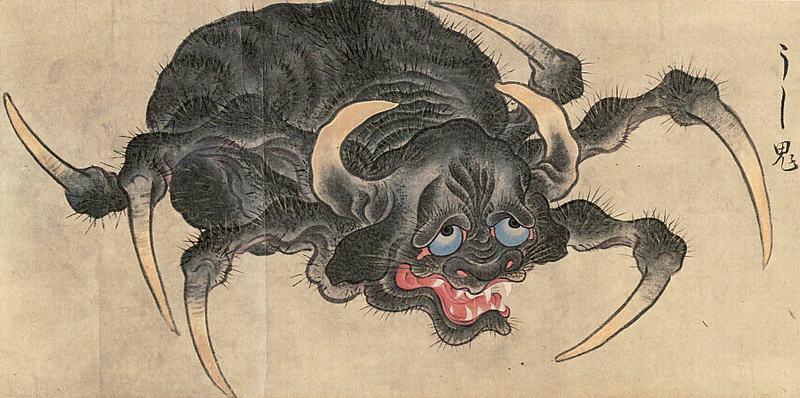
The Ushi-Oni is a spider-like, ox-headed yokai (supernatural creature) from Japanese folklore who appears on beaches, mountains, forests, swamps, and lakes. They’re savage beasts who spit poison and love to kill and eat humans and livestock. Image: Hyakkai-Zukan
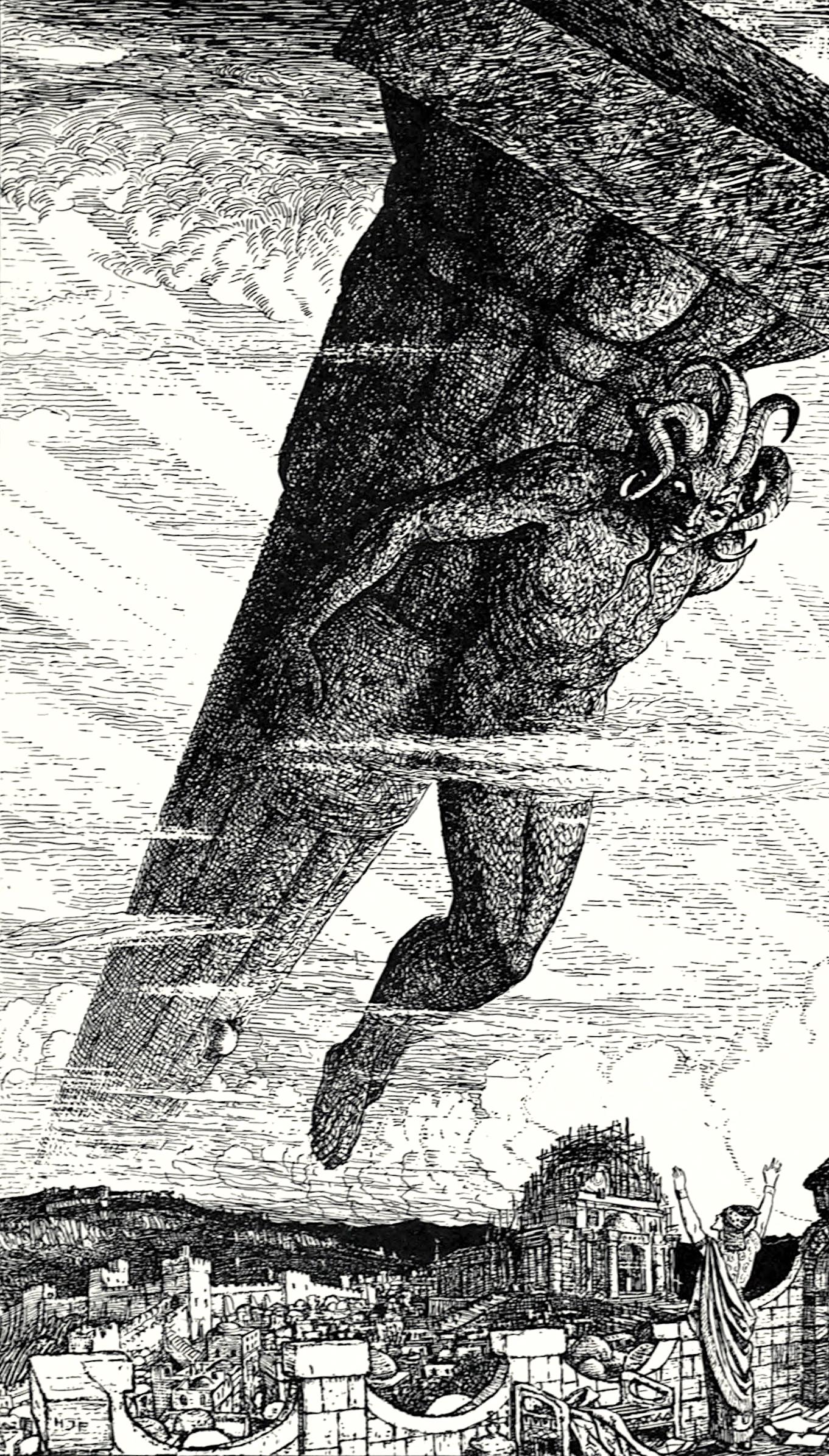
Ephippas is a demon found in The Testament of Solomon that assumes the form of a hellish wind that destroys everything in its path. Solomon uses his magic ring to trap him in a flask, and forces him to help build his temple, and imprison the demon Abezithbod. Image: H.J. Ford, Old Testament Legends, 1913
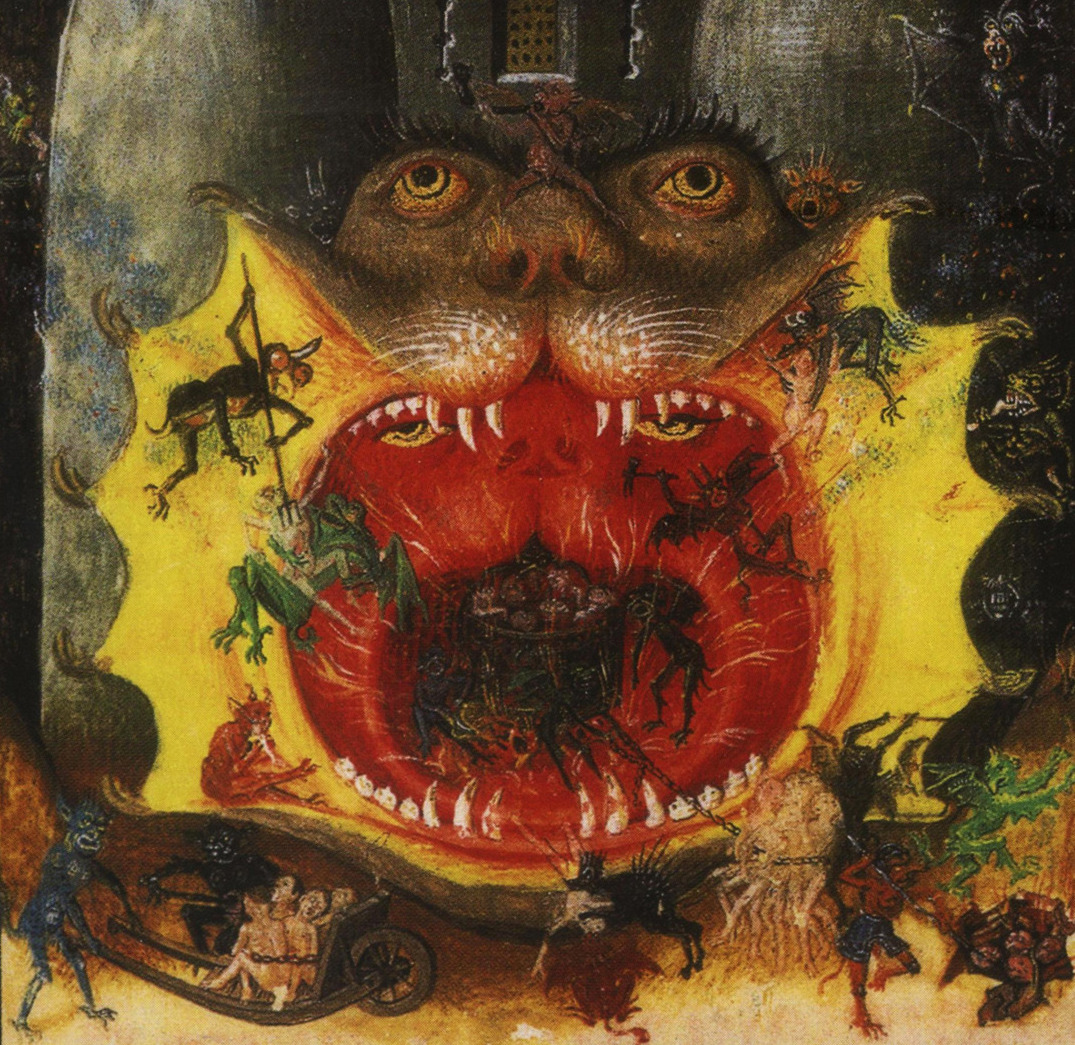
The Hellmouth is an entrance to hell that manifests as the open jaws of an infernal beast. Depictions of Hellmouths were common during the Middle Ages and Renaissance in manuscripts, and even as dramatic mechanical set pieces in theatrical productions.
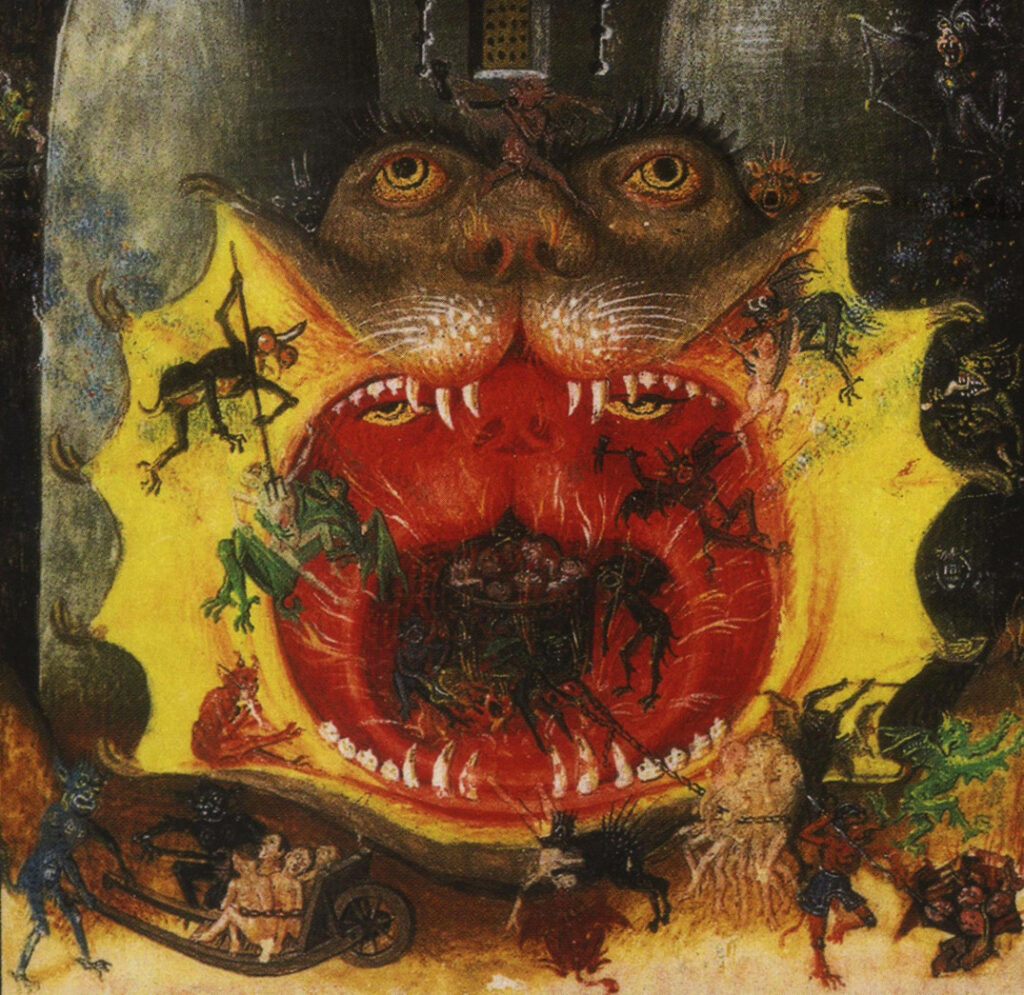
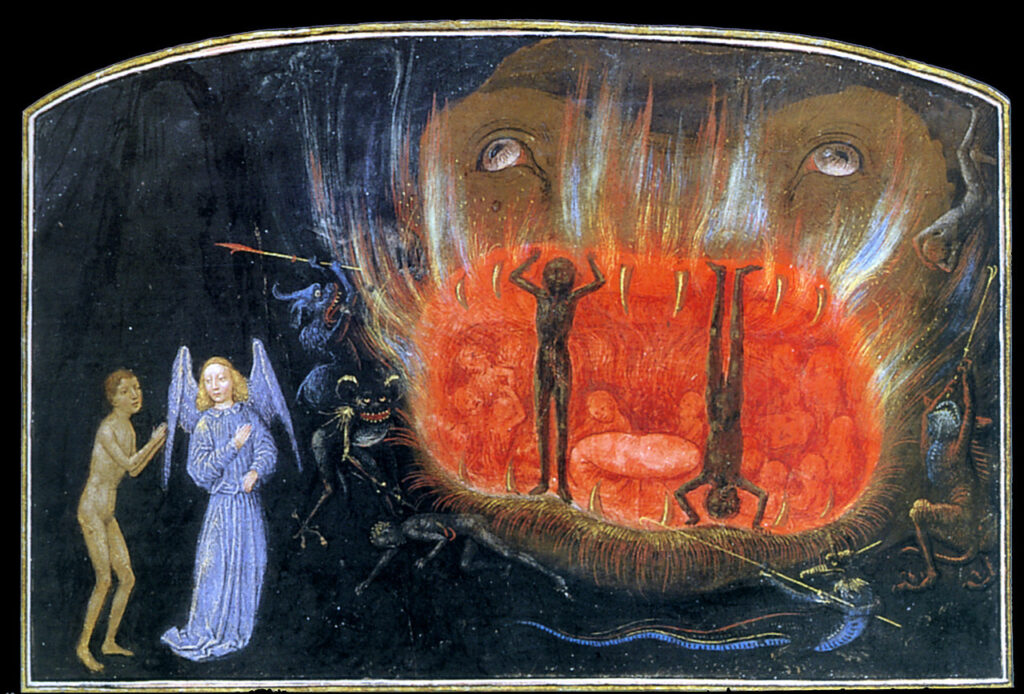
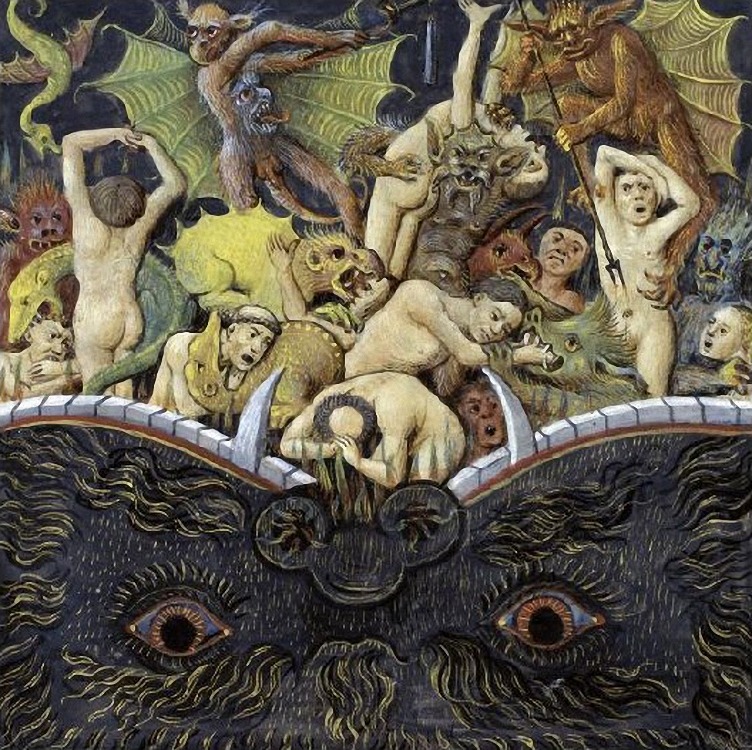
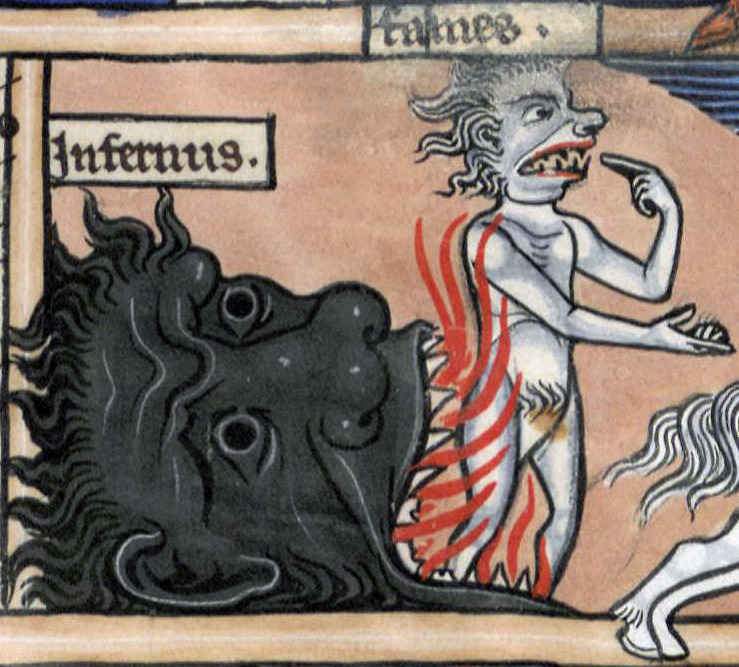
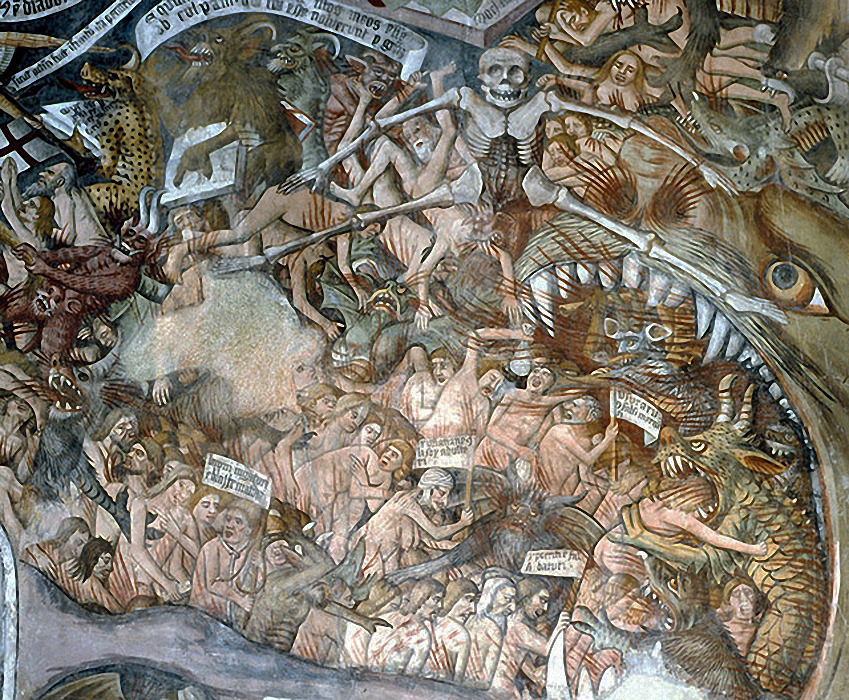
Image sources: